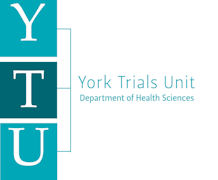Scaling Up Quality Improvement for Surgical Teams (QIST): avoiding surgical site infection and anaemia at the time of surgery: a randomised controlled trial
The QIST trial assessed the effectiveness and cost effectiveness of a Quality Improvement Collaborative for introducing service improvements at scale in the NHS. Working with Northumbria Healthcare NHS Trust, we looked specifically at improving outcomes in patients undergoing elective total hip and knee replacements.
Why did we do this research?
Implementing service improvements that have been shown to work remains a challenge for the NHS. Our study aimed to see if a quality improvement collaborative was an effective mechanism for introducing change at scale in healthcare.
What did we do?
We identified two service improvement protocols that had been shown to improve patient outcomes and to save costs, but neither was included in routine practice across the NHS.
- screening pre-operatively for Methicillin Sensitive Staphylococcus Aureus (MSSA)
and providing patients with a decolonisation pack where necessary - identifying and treating anaemia pre-operatively
In a cluster randomised controlled trial we tested a Quality Improvement Collaborative for introducing these protocols into NHS practice. Twenty NHS Trusts taking part in the study were randomised to receive training and support in how to introduce the MSSA quality improvement initiative in their own Trust. A further 20 Trusts were allocated to training for the anaemia quality improvement initiative. The groups of Trusts acted as controls for each other and at the end of the trial were given the option of training in the alternative initiative. The trial used quantitative and qualitative methods to examine the process of implementing the protocols in each Trust and assess the cost effectiveness.
Who did we involve?
We worked with English NHS acute Trusts performing elective primary total hip and/or total knee arthroplasty, where the Trust executives had to commit to providing support for the project. The only exclusion was if the Trust was already using one of the protocols.
A patient and public representative group and 16 orthopaedic inpatients were happy for Trusts to be randomised and for us not to obtain individual patient-level consent. A patient representative helped develop and deliver the support programme.
What did we find?
Of the 40 Trusts randomised, there were 19,254 procedures from 27 NHS Trusts included in the results. There were no improvements observed for blood transfusion or MSSA deep Surgical Site Infection, nor any significant improvements in any secondary outcome. However, process measures showed the preoperative pathways were implemented for 73.7% and 61.1% of eligible procedures in the infection and anaemia arms, respectively. So, although the quality improvement collaboratives did not result in improved patient outcomes in this trial; there was some evidence they may support the successful implementation of new preoperative pathways in the NHS.
What difference did we make?
Feedback from participants shows that the QIST programme had brought about many positive changes such as improved communications within and across departments in Trusts delivering care to orthopaedic patients. Many participating teams felt energised and motivated to consider other quality improvements in their own Trusts and to take part in other research studies.
As a result of undertaking this research, screening and treatment of iron deficiency anaemia in patients listed for major elective blood loss surgery, became a Commissioning for Quality and Innovation (CQUIN) indicator. It was also cited in a Blood and Transplant leaflet for clinicians on Pre-operative optimisation of iron deficiency anaemia.
NHS leaflet (clinicians): Pre-operative optimisation of iron deficiency anaemia (PDF ![]() , 117kb)
, 117kb)
Privacy Notice: How we use your research data
Publications
Presentations
Other study outputs/activities
Funding
| Funders |
|
| Start date: | 1st September 2017 |
| End date: | 31st July 2020 |



QIST Main Results Paper
Scrimshire AB, Booth A, Fairhurst C, Coleman E, Malviya A, Kotze A, et al. Scaling up
Quality Improvement for Surgical Teams (QIST)-avoiding surgical site infection and
anaemia at the time of surgery: a cluster randomised controlled trial of the
effectiveness of quality improvement collaboratives to introduce change in the NHS.
Implement Sci 2022;17:22.
https://doi.org/10.1186/


